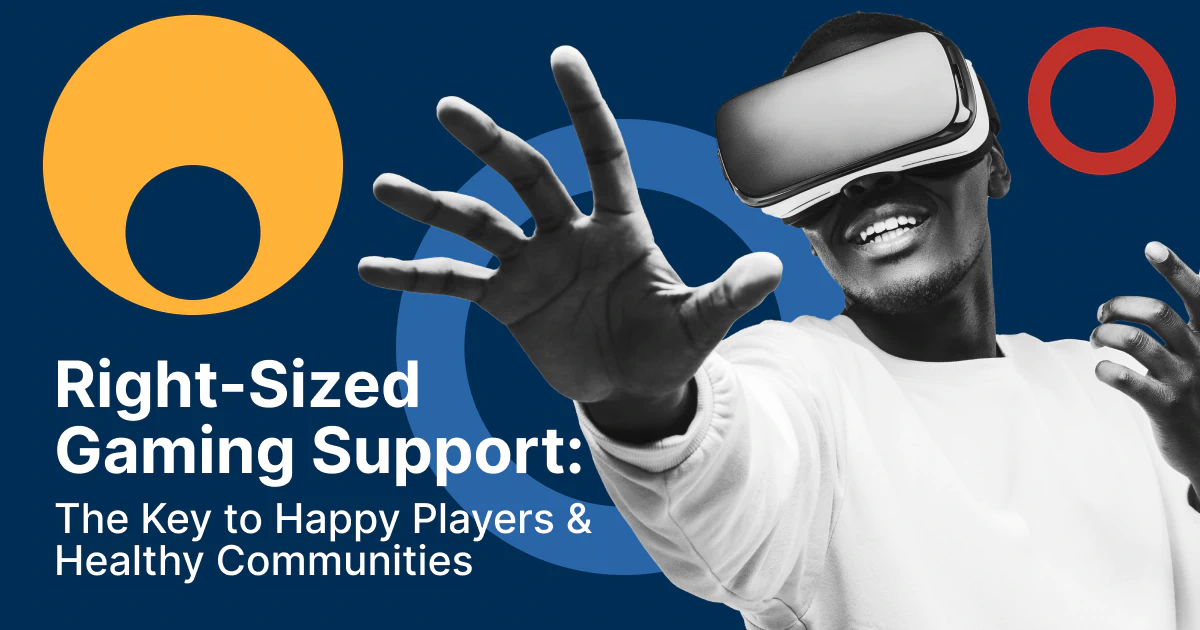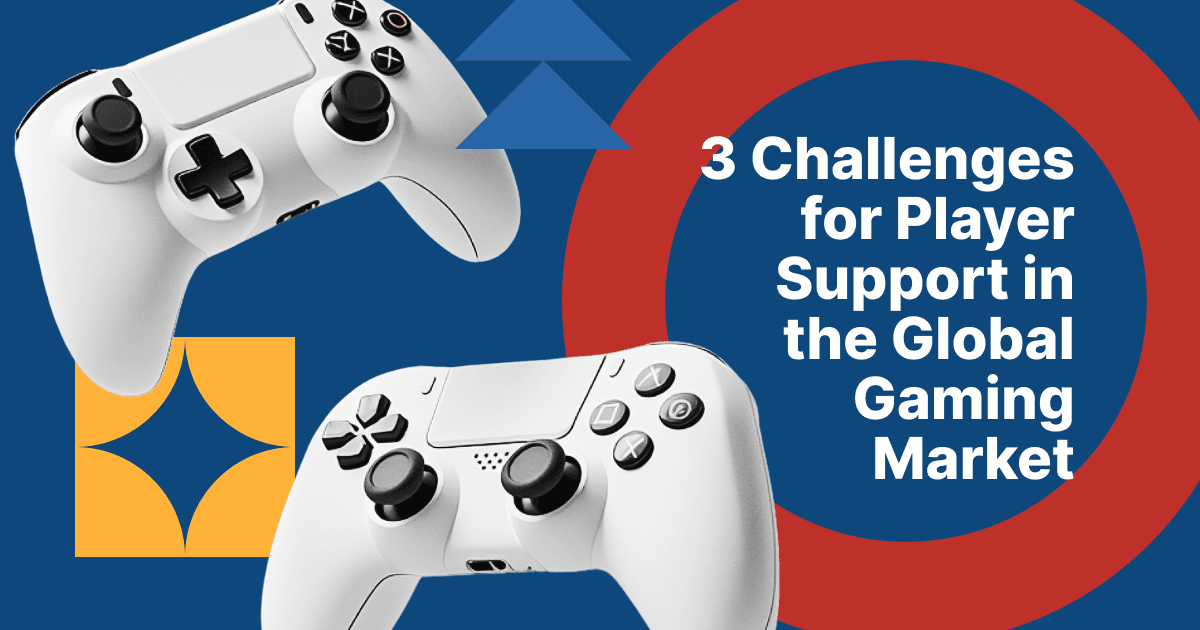Support and Moderation: How Gaming Studios Can Get It Right
A single viral moment, a Game Pass drop, or an unexpected surge in popularity can flood your game with millions of new players overnight. If your support system isn't ready to seize the opportunity, you risk a reputation hit that sticks.
But it's not just about volume. A standard troubleshooting request isn't the same as moderating a fast-moving Twitch chat or handling a player dispute in a Discord server. You need the right people in the right roles, not just a blanket approach to player support and volunteer mods. And when you start expanding into new regions, understanding local laws, regulations, and player expectations becomes just as important as answering tickets quickly.
(And for those who want to dig deeper, we've covered the challenges facing player support in depth elsewhere. )
So, how do you get the "right" support without overpaying or frustrating players? It's all about finding the right balance. Here's how.
Scalability: Prepare for Surges Without Overpaying
One of the biggest challenges for game developers is determining how much player support they need. The reality is that player engagement is unpredictable. A sudden influx of new players from a viral moment, a major update, or a partnership with a subscription can explode ticket volumes overnight. But what happens when that surge dies down? If you've over-invested in permanent support staff, you're left paying for capacity you no longer need.
On the other hand, underestimating support needs can be even worse. If your game's popularity spikes and you don't have the team to match, response times drag, issues go unresolved, and players get frustrated enough to leave. In a hyper-connected gaming world, stories and posts about player support spread fast, which can hurt your reputation with players at best and turn into a PR mess at worst.
Fortunately, it doesn't have to be a dice roll. Instead of committing to fixed staffing models, hourly, on-demand support lets you burst up as demand rises. Scale up when needed, and scale down when it stabilizes. No overpaying, no underserving your players—just a system that adjusts to the real-world needs of your game.
Diverse Agent Options: Matching the Right Expertise to the Right Task
When handling a multilingual audience, you need to match the right expertise to the right role. Different roles require different levels of language proficiency and cultural awareness—and treating them as interchangeable is a mistake that can cost you both money and brand integrity.
When it comes to player moderation, cultural nuance is everything. Gaming lingo evolves at breakneck speed, and toxicity doesn't always come with a flashing warning sign. Slang, abbreviations, memes, and coded language can fly under the radar—even for native speakers. A generic moderation team might miss harmful behavior entirely or, worse, over-police harmless banter, alienating players and killing community engagement.
But not every support task requires that level of immersion. Handling account access issues, tech troubleshooting, and refunds require a different skill set. Resetting passwords or processing refunds doesn't require highly engaged native speakers.
A good support partner knows how to strike the right balance. Industry-standard tiers of language expertise are great—but gaming adds another layer. You need a partner that can offer both gaming-savvy moderators for community engagement while also deploying cost-effective multilingual agents for general support tickets.
Localized Support vs. Regional Knowledge: Knowing the Difference
Expanding into new markets isn't just about translating your game—it's about understanding local regulations, player expectations, and cultural differences. That's why regional support matters, but relying on traditional regional models can limit flexibility and drive up costs.
Here's where most support models fall short: If you're working with multiple regional vendors, players can get stuck in an endless loop of handoffs, waiting days for a resolution to what should be a simple fix. Take a U.S. gamer traveling in Brazil—if their purchase gets flagged as fraudulent by automated fraud detection, a fragmented support system can turn a quick fix into a logistical nightmare. Different vendors, different tools, and no seamless escalation path? That's how players end up locked out of their accounts for days.
A remote-first, multimarket support team solves this. They can offer regional expertise where needed — agents who understand compliance, cultural norms, and local player expectations — but without the inefficiencies of a call center-bound or local-only model. Integrated teams work across markets, handing off tickets instantly so players don't get bounced between disconnected support teams.
With the right setup, developers don't have to choose between global reach and local knowledge. You get scalable, cost-efficient player support that speaks the right language—both literally and culturally.
The Right Support Makes All the Difference
Support and moderation are a core part of the player experience. Whether it's handling massive surges in demand, keeping communities safe with culturally fluent moderation, or making sure international players don't get stuck in an endless support loop, your approach to player support and moderation can make or break your game's reputation.
Modern games need scalable, flexible support that adapts to real-world player behavior. When you get it right, players stay engaged, issues get solved faster, and your game thrives.




